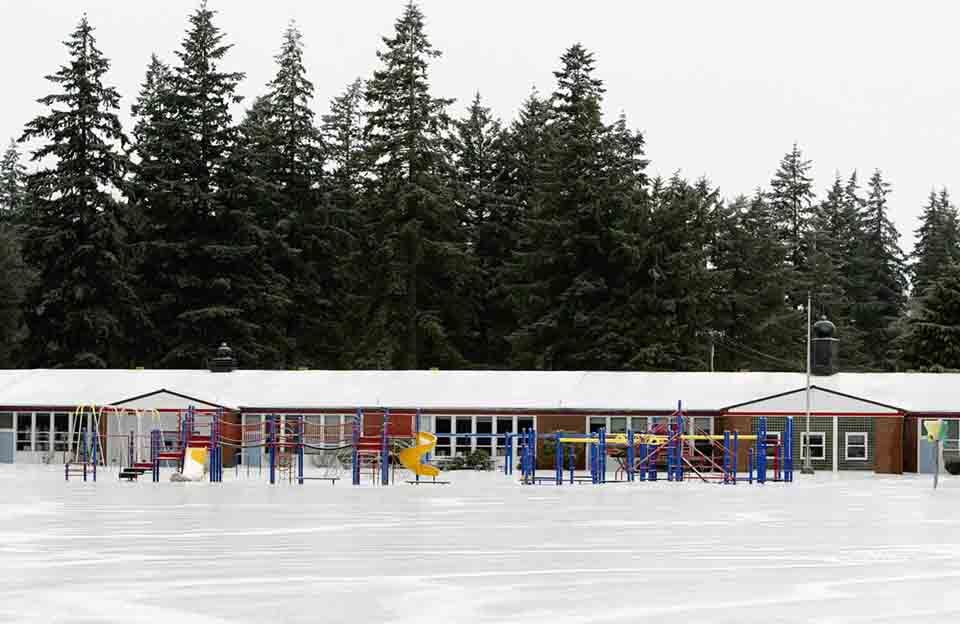Freezing Rain and Temperatures Continue in the State of Oregon

PORTLAND, Ore. — People in the State of Oregon are encouraged to remain indoors as the icy weather in Oregon is expected to continue.
The Oregon Department of Emergency Management (OEM) warned about below freezing temperatures set to continue across northwest Oregon and southwest Washington. More freezing rain, especially across these areas, was expected late into Tuesday morning. The National Weather Service also predicted rain of about half an inch.
People should stay clear of roads, and Oregonians must prepare themselves for more power outages and falling trees.
Consider The Road Conditions
- The Oregon Department of Transportation (ODOT) suggested that drivers postpone any travel until later this week. If you cannot delay, you should prepare yourself for hazardous conditions.
- Be aware that freezing temperatures can freeze the road surface overnight.
- If you have to travel, be armed with carry chains, regardless of whether you have a four-wheel drive or traction tires. Also, ensure that you have enough gas, warm jackets, blankets, phone chargers, and food in case there are delays on the roads.
- Even though the roads are being plowed and de-iced, these efforts are limited because of the continued dangerous weather conditions.
If traveling is imperative, ODOT encourages travelers to check with TripCheck.com or to call 5-11 to double-check the conditions of the roads and have emergency supplies.
Power Outages
- Oregon’s Public Utility Commission (PUC) indicated that icy conditions and high wind will continue to cause more outages.
- Breaks in communication can occur. Internet service and cell phone services could be interrupted because of fibre and power outages.
- A battery-operated radio is invaluable for getting updates on weather and road conditions.
- Even though the utility repair crews are working to restore power, it may take a while for the power to get back on.
What to Do During a Power Outage:
- Inform your electric utility service provider. You can call the northwest Oregon and southwest Washington investor-owned utilities regulated by the PUC that cover your area. The different area contact details are:
- Portland General Electric: 800-544-1795
- Pacific Power: 877-508-5088
- Idaho Power: 800-488-6151
- Avoid going near downed power lines.
- The same applies to areas where utility crews are busy working.
- A battery-operated flashlight or lantern is safer than candles.
- Protect your appliances, plugs, and lighting against a power surge; switch them all off. Leave one light on to indicate when the power is restored.
Tips for Natural Gas During Power Outages or Evacuation:
- When evacuating, you do not need to shut off your gas.
- Once the power is restored and your gas appliances are faulty, call your provider.
- Do not turn on your gas yourself if the service is shut off. Call your service provider.
- Call 911 and evacuate your premises immediately if you smell any gas.
In Need of a Warming Shelter?
- For warming shelter access, the Oregon Department of Human Services’ Office of Resilience and Emergency Management (ODHS OREM) has reserved the number 211 for people to call.
- This activated number will remain until freezing temperatures improve. Any person in need of warmth can call this number. You can find open, warm shelters at 21info.org.
- Check with neighbors to see if they are in need of warming. You may want to offer your services as well.
Insurance
- You can find answers to insurance queries from the consumer advocates of the Oregon Division of Financial Regulation. Their number is 888-877-4894. You may also email them at [email protected]. This is necessary if your car or home was damaged during the winter storm.
- You should also call your insurance company or agent to discuss your policy details, such as claim deductibles, coverage, and exclusions, before filing a claim.
Staying Informed
- Follow the advice of the Oregon Department of Emergency Management (ODEM):
- Stay indoors
- Have an emergency kit ready.
- Have an emergency plan
- Stay informed of situations
- Sign up at https://oralert.gov for local emergency alerts. Make sure yours is updated.
- Track the weather patterns with a battery-operated radio, your television, cell phone, weather radio, or the updates at https://weather.gov.
- Have emergency supplies ready in case of power outage. This may include:
- A first-aid kit
- Non-perishable, ready-to-eat foods such as freeze-dried vegetables or fruit, granola bars, jerky, nuts, pretzels, rice, and beans for several days.
- Water for drinking and sanitation (you need at least one gallon per person per day for a number of days).
- A manual can opener or a Swiss knife.
- You need a cell phone with a backup battery and a charger (use only for emergencies).
- A battery-powered, hand crank radio or a weather radio at hand.
- A flashlight with extra batteries.
- You will need warm, woollen blankets or sleeping bags.
ODEM also advises people with special cases to prepare differently for emergencies. For example, people with disabilities, older adults, and caregivers should take their individual circumstances and specific needs into consideration when planning for emergencies. A support network is vital as well.
You can check the weather in Ashland here.

Comments are closed.